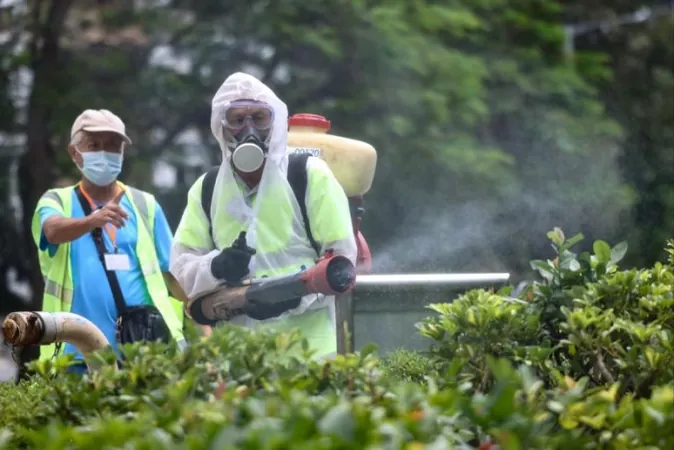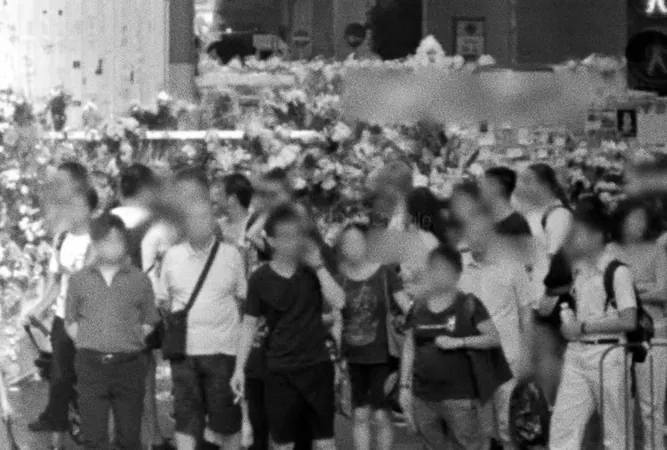
Warning: Imported Chikungunya Cases Set to Surge in Hong Kong!
2025-08-08
Author: Yan
A leading infectious disease expert has issued a stark warning: Hong Kong is on the brink of a steady increase in imported chikungunya fever cases. Residents are urged to steer clear of high-risk areas as the city grapples with its latest infections.
Dr. Joseph Tsang Kay-yan, who chairs the advisory committee on communicable diseases for the Hong Kong Medical Association, cautioned that recent heavy rains have heightened concerns about not just imported cases, but also the potential for local transmission.
"We can expect imported cases of chikungunya fever to rise," Dr. Tsang shared during a radio program. He emphasized the importance of personal responsibility, urging residents to refrain from traveling to high-risk regions.
Many Hong Kong residents frequently visit Guangdong province, where infections are spiking. Consequently, if these individuals contract the virus, they could inadvertently introduce it back into the city.
Chikungunya fever is transmitted via mosquito bites, often leading to debilitating fever and severe joint pain that can linger for months or even years. Additional symptoms might include muscle pain, nausea, and skin rashes.
The city's recent downpours, which prompted its second-longest black rainstorm warning, have created ideal breeding conditions for mosquitoes, raising the risk of more infections.
When asked about the likelihood of local transmission, Dr. Tsang stressed that effective mosquito control measures will be crucial in mitigating potential outbreaks.
He urged the community to join efforts in curtailing the disease's spread by being vigilant about mosquito control and avoiding areas of high risk.
Travelers returning from high-risk regions should keep a close watch on their health and continue using mosquito repellent for at least two weeks post-return, he noted.
Interestingly, approximately 15% to 35% of infected individuals may show mild symptoms in the first week, making it easy to overlook. This could inadvertently facilitate the virus’s spread.
Those suffering from severe joint pain and fever must seek medical attention, as lingering aftereffects can last for several months, with some patients facing chronic arthritis.
In the wake of Hong Kong's first imported chikungunya case in six years, officials confirmed three new cases linked to recent travels to Guangdong province and Bangladesh. Notably, the latter two were classified as imported due to their entire incubation period spent abroad.
Surveillance data reveals that mosquito breeding in about 70% of monitored urban areas has reached alarming levels, and experts are pressing for intensified mosquito control measures in response to the torrential rains.
Communities like Lei Tung Estate in Ap Lei Chau show a proactive stance, with residents actively engaging in preventative efforts. Members of the local Southern District Care Team distributed informational leaflets and mosquito-repellent patches to help residents combat the threats.
Retiree Ng, 70, expressed confidence in community efforts, saying, "We are taking all the necessary precautions." Meanwhile, younger residents like 21-year-old Ng Chun-ming admit to a lack of knowledge regarding the disease, highlighting the need for continued education.
Further pest control measures are planned, but residents remain hopeful and committed to maintaining a safe environment.



 Brasil (PT)
Brasil (PT)
 Canada (EN)
Canada (EN)
 Chile (ES)
Chile (ES)
 Česko (CS)
Česko (CS)
 대한민국 (KO)
대한민국 (KO)
 España (ES)
España (ES)
 France (FR)
France (FR)
 Hong Kong (EN)
Hong Kong (EN)
 Italia (IT)
Italia (IT)
 日本 (JA)
日本 (JA)
 Magyarország (HU)
Magyarország (HU)
 Norge (NO)
Norge (NO)
 Polska (PL)
Polska (PL)
 Schweiz (DE)
Schweiz (DE)
 Singapore (EN)
Singapore (EN)
 Sverige (SV)
Sverige (SV)
 Suomi (FI)
Suomi (FI)
 Türkiye (TR)
Türkiye (TR)
 الإمارات العربية المتحدة (AR)
الإمارات العربية المتحدة (AR)